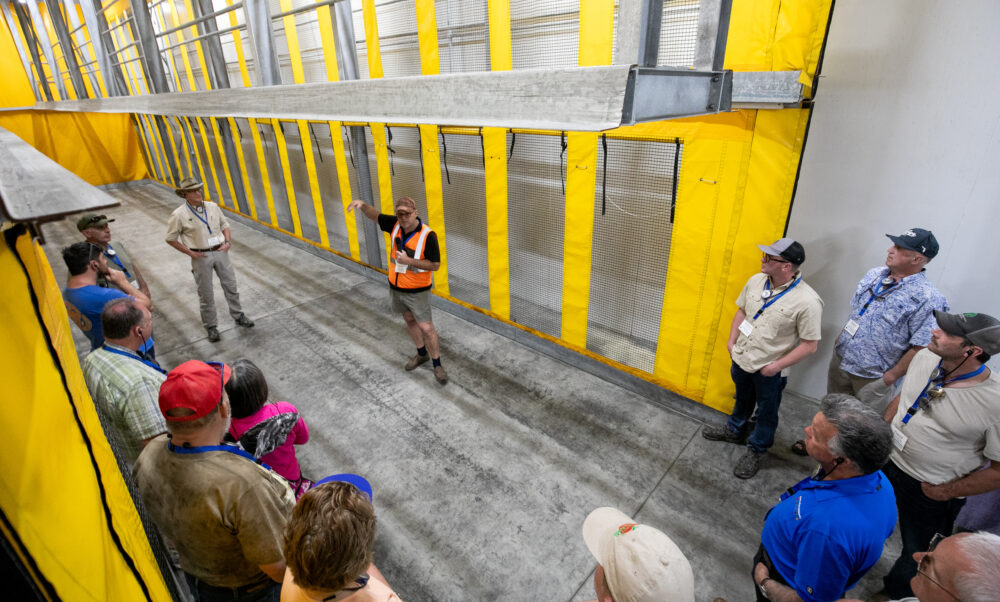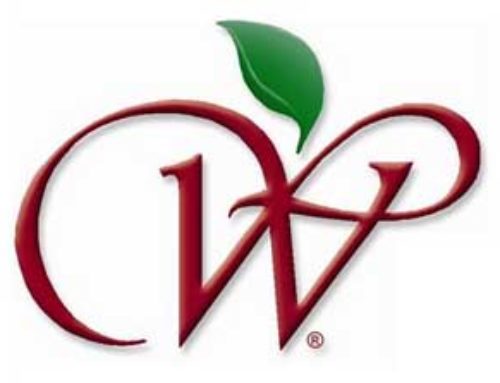
In the stone fruit production region around Stellenbosch, South Africa, it’s regularly over 100 degrees Fahrenheit (or 40 Celsius, if you want to sound like a local) during harvest.
That means cooling the fruit is critical to protect quality for the export-focused growers, such as the Le Roux Group, which the International Fruit Tree Association visited on Dec. 5.
“I’ve measured plums coming in as high as 52 degrees (Celsius). That’s half cooked,” said Marius Voigt, the packing house operations manager for Fruit2U Packers. “We want to cool it down as soon as possible.”
So, the state-of the-art packing house starts with hydrocooling all the freshly harvested fruit, which is then stored in cold rooms and packed as soon as possible. The packed pallets are then stored in forced-air cooling “tunnels” before they are shipped out.
Ideally they are shipping on weekends, when there is less traffic to delay the trucks on the way to the cold storage containers at the Port of Cape Town, Voigt said.
Heat stress management is also apparent at the adjacent Sandrivier Orchard, which has nets over 65 of its 200 or so hectares (or 161 of its 494 acres) of plums.
The netted plantings feature white, 20 percent shade netting on top and green, 40 percent netting on the sides to protect the orchards from wind damage as well, said manager Stephan Strauss.
He also shared his preferred plum training system, which features a 9-wire V-trellis. Trees are planted with a 2-meter (6.5-foot) spacing on each wall, creating 18 meters (59 feet) of bearing space on the branches trained to each wire.
“With more informal systems, thinning was more difficult,” Strauss said. “It’s expensive at the beginning, but it lasts 10 to 15 years.” After that, branches need to be renewed.
Tour attendees were impressed with the well-trained and thinned block, which Strauss pointed out is possible due to the much, much lower cost of labor compared to the cost North American growers contend with.
Unemployment is high in South Africa, and many growers, including Le Roux Group owner Jan le Roux, take their role as job creators seriously.
“Mechanization is not high on the agenda in South Africa because we have an ethical responsibility to create jobs on farms,” said Karen Theron, professor emeritus at Stellenbosch University, who acted as tour guide for the day.
Theron’s colleague, Elke Crouch, and Mariette Kotze of Hortgro, the pome and stone fruit industry’s grower association, also shared an overview of South Africa’s approximately $1 billion (USD) industry, which produces about 2 million metric tons of fruit annually on 54,271 hectares (134,107 acres).
—by Kate Prengaman






Leave A Comment